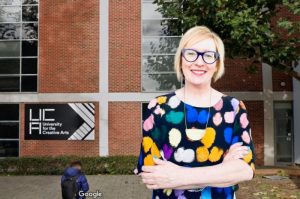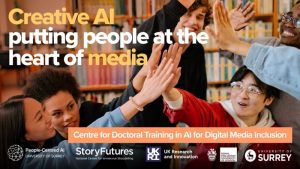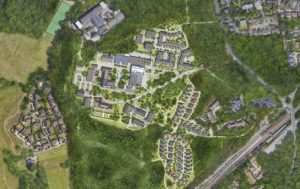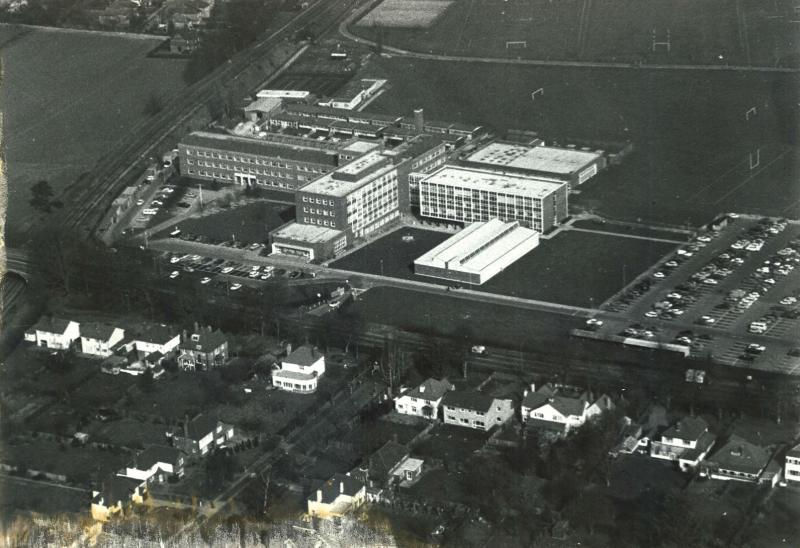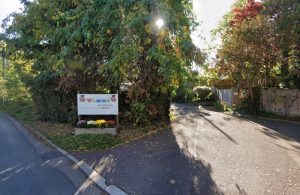A “culture of discrimination and inequality” goes unaddressed at a school for children with additional needs, where pupils “fear reprisals” from some senior staff if they report concerns, according to Ofsted inspectors.
An inspection into the independent school was requested “as promptly as possible” by the Department for Education, following complaints from parents.
Inspectors described a “negative culture” across staff, pupils and parents at the school, pupils subject to “racial and homophobic slurs and sexualised language and behaviours” and leaders not showing the “capacity to lead and improve the school”.
Their findings rated Wemms Education Centre, in Long Ditton, inadequate overall and in the areas of behaviour and attitudes, personal development and leadership and management, in a report published on Tuesday (September 12).
The quality of education at the school and its sixth form provision were both rated “good”, and inspectors said teachers were clear about what they wanted pupils to learn and how, with curriculum leaders having “expert subject knowledge”.
But inspectors said leaders’ understanding of safeguarding was “weak”, without a shared understanding of what constituted a “serious concern”. Their report said: “Consequently, referrals to other agencies have been too slow, meaning that pupils are placed at risk of harm. Furthermore, senior leaders are not clear about who the most vulnerable pupils in school are.”
Speaking after the report was published Wemms chief executive, Duncan Murphy, told the LDRS the report did “not mirror other external reviews of life at Wemms” but accepted that growth has not come without its challenges. He said: “It is no secret that the school challenged some areas of the report; now that it has been published, it is important that we focus on what matters the most – being a school that reflects, learns and ensures that every child has the best possible experience under our tutelage.
“In order to achieve this, we have put together a comprehensive action plan outlining active steps we are taking to amplify our strengths and target areas of improvement. Trustees have added additional capacity to the leadership team, and it is also our aim to diversify and professionalise governance so that there is greater rigour and accountability throughout.“
According to inspectors, “strong work” done at the school was “sullied by a culture of discrimination and inequality that goes unaddressed”.
Pupils at the school are those who have been “unable to cope in mainstream education” and typically have social, emotional and mental health needs with almost all having an education, health and care plan in place.
Inspectors said: “Too many pupils do not feel happy or safe at school. They are fearful of the bullying behaviour of other pupils, which goes unaddressed. During inspection, pupils, staff and parents spoke of the negative impact on pupils of racial and homophobic slurs, inappropriate sexualised language and behaviours. Pupils trust only some adults in school to help them. Many pupils fear a lack of empathy, even reprisals, from certain leaders should they report a concern.”
The Ofsted report said pupils believed they were treated “inconsistently and unfairly” and as such “a culture of intimidation, mistrust and fear abounds”.
Six action points were set out by inspectors for the school, with fees of £50,000 per year, to improve.
Inspectors described relationships within and between all groups of staff as “severely flawed” and said the school was a “deeply fractured community”. They said there was a “a widespread lack of trust and confidence” in the school’s leadership and that parents too were “deeply divided” in their views of the school, particularly its leadership.
According to the Wemms website, the school was “proud to declare itself a ‘marmite’ school… you will love us or hate us”. It said: “Our school is for individuals and mavericks who yearn for a bespoke education, which allows them to learn in their own way and at their own pace.”
With parents able to write to the inspectors as part of the process, the Ofsted report said positive and negative opinions were equally received, and a smaller number wrote with neutral views.
Three quarters of parents who completed Ofsted’s online survey said they would recommend the school, but common themes were raised regarding “unsupportive behaviour towards pupils and parents, particularly regarding the management of concerns”.
Less than a quarter of staff who completed a survey said that the school was well led and managed, and only one third believed they were treated fairly and with respect.
But inspectors said around two thirds remained happy to work at the school and believed leaders were considerate of their workload.
Inspectors said: “A negative culture pervades the school and permeates across staff, pupil and parent groups. Some staff, parents and pupils are wary of leaders and feel unable to air their views or concerns. “Leaders should take urgent action to ensure that members of the school community are able to express their views without fear of reprisals. Leaders should work to establish a positive, shared school ethos.” As well as this, there were concerns that leaders’ responses to pupils’ breaking the rules were “inconsistent and unfair” and that sanctions were not applied consistently.
The report said: “Inspectors heard repeatedly from staff, pupils and parents that pupils are not kept safe from bullying and abuse, including the use of racial and homophobic slurs and sexualised language and behaviours.”
They added that there were no established strategies to address these behaviours and that behaviour and anti-bullying policies were not effectively implemented.
The school’s nurse left the organisation during the course of the inspection in May as a result of her concerns, put in writing to the school in March 2023, relating to safeguarding, medication, staff training and a lack of autonomy to practise as a school nurse.
Staff, pupils and parents also raised concerns about the school’s response to pupils’ medical needs.
What does the school do well?
Inspectors said the pupils’ experiences at the school varied widely, and that the move from a site in Leatherhead to Long Ditton in 2022 had “proved popular”.
They said the pupils generally behaved well in lessons, whether working individually or in twos with a teacher and that there was “high academic ambition” across the school.
The report added: “Pupils achieve strongly across a range of subjects, frequently beyond their own and their family’s expectations. Older pupils learn to drive, helping them to be prepared for their futures. However, these successes are not mirrored in other aspects of school life.”
The LDRS understands some parents do not support the inspector’s findings and are looking into lodging a formal complaint about the Ofsted report. One parent said the school had been a “life changer” for their family.
How the school responded
Duncan Murphy, chief executive of Wemms Education Centre, said the school had a “proud history of supporting children with complex and challenging needs” and two positive previous inspections were the reason for moving to the bigger site.
He said the report did not mirror other external reviews of the school, but added that the school “wholly accept and understand that growth has not come without its challenges”.
With the school having challenged aspects of the report, he also pointed to pupils who “achieve strongly” and that many parents would be happy to recommend the school to others.
Mr Murphy said: “However, there have rightly been questions of consistency which we will seek to address with pace and purpose as we build for the future.”
The school would focus on being one that would reflect, learn and ensure that every child at Wemms had “the best possible experience”, he added.
With an action plan outlining steps being taken, as well as changes to governance for “greater rigour and accountability throughout”, Mr Murphy also said concerns regarding discrimination and inequality were being tackled.
He added: “We firmly believe that our community can once more be united behind a shared vision of excellence for those pupils who need a school like ours the most. It is a source of great regret to us that the essence of this aim has been misplaced since the move to a new site last year, but now is an opportunity to drive improvement and ensure a long and successful future for our school and its community.”



